How To Write A Research Paper
Research Paper Thesis


How To Write a Thesis For a Research Paper Step by Step
13 min read
Published on: Mar 6, 2024
Last updated on: Oct 28, 2024

People also read
How to Write a Research Paper Step by Step
How to Write a Proposal For a Research Paper in 10 Steps
A Comprehensive Guide to Creating a Research Paper Outline
Types of Research - Methodologies and Characteristics
350+ Interesting Research Paper Topics to Get You Started
Interesting Psychology Research Topics & Ideas
Qualitative Research - Types, Methods & Examples
Understanding Quantitative Research - Definition, Types, Examples, And More
Research Paper Example - Examples for Different Formats
How To Start A Research Paper - Steps With Examples
How To Write a Literature Review for a Research Paper | Steps & Examples
Types of Qualitative Research Methods - An Overview
Understanding Qualitative vs. Quantitative Research - A Complete Guide
How to Cite a Research Paper in Different Citation Styles
Easy Sociology Research Topics for Your Next Project
200+ Outstanding History Research Paper Topics With Expert Tips
How To Write a Hypothesis in a Research Paper | Steps & Examples
How to Write an Introduction for a Research Paper - A Step-by-Step Guide
How to Write a Good Research Paper Title
How to Write a Conclusion for a Research Paper in 3 Simple Steps
How to Write an Abstract For a Research Paper with Examples
How to Write a Discussion For a Research Paper | Objectives, Steps & Examples
How to Write the Results Section of a Research Paper - Structure and Tips
How to Write a Problem Statement for a Research Paper in 6 Steps
How To Write The Methods Section of a Research Paper Step-by-Step
How to Find Sources For a Research Paper | A Guide
Share this article
Creating a strong thesis for a research paper can be tough for researchers and scholars. Despite their expertise, condensing complex ideas into a clear thesis statement is a common struggle.
This concise element encapsulates the core arguments or points of the piece. Notably, a thesis statement serves various roles, prominently addressing the research question.
This guide offers a step-by-step approach for researchers and scholars to learn thesis writing. From choosing a solid topic to balancing academic standards, each step aims to empower you in creating a thesis that meets scholarly criteria and resonates widely.
This guide ensures you develop a strong thesis, making your research paper stand out in academic circles.
On This Page On This Page -->
What is a Thesis Statement?
A thesis statement is a concise sentence that presents the main point or argument of a research paper or an essay.
According to the University of North Carolina at Chapel Hill's Writing Center , a thesis statement is defined as, "a concise, declarative statement that encapsulates the central argument or main point of an academic paper or essay. It serves as a guidepost for the reader, outlining the focus and direction of the piece"
In a standard academic essay writing or research paper , the thesis statement is typically placed at the end of the introduction. It serves as a roadmap for the reader, providing a concise summary of the main point or argument that the paper will explore.
The structure of an introduction often follows a general pattern:
- Hook/Attention Grabber
- Background Information/Context
- Thesis Statement
There is no strict rule regarding the length of a thesis statement, as it can vary depending on the complexity of the topic and the scope of the paper. However, as a general guideline, a thesis statement is typically one or two sentences long.
Qualities of a Good Thesis Statement
A strong thesis statement possesses several key qualities that contribute to its effectiveness:
- Clarity and Precision : Clearly conveys the main idea without unnecessary complexity, avoiding vague language.
- Debatable and Focused : Presents a claim open to interpretation, requiring support and evidence, and maintains a narrow focus.
- Assertive and Defensible: Takes a clear position, avoiding indecisiveness, and is defensible through logical reasoning and evidence.
- Relevance to the Topic : Directly relates to the subject matter, avoiding irrelevant or off-topic statements.
- Scope Limitation : Defines the paper's scope, avoiding broad, sweeping statements to maintain focus.
- Analytical and Thought-Provoking : Goes beyond stating facts, presenting an argument that requires analysis and thought, encouraging consideration of multiple perspectives.
- Coherent and Well-Structured : Well-crafted with a logical structure, serving as a roadmap to guide the reader through the main points of the research paper.
How To Write a Thesis Statement in 5 Steps
Writing a thesis statement involves several key steps to ensure that it is clear, concise, and effectively conveys the main idea of your essay or research paper. Here's a guide with steps and examples:
Step 1. Understand the Assignment
Before diving into writing a thesis statement, thoroughly understand the assignment's requirements, including the topic, length, and specific guidelines provided by your instructor or the prompt.
Step 2. Narrow Down Your Topic
Choose a specific aspect or angle within your broader research paper topic that you can effectively address in your paper. This helps in focusing your research and drafting a more precise thesis.
Example : If your original topic is "Global warming," narrow it down to "The impact of deforestation on global warming."
Step 3. Conduct Research
Gather relevant information and find sources to support your thesis. A well-researched thesis is more likely to be compelling and convincing.
Example : Find studies, scientific articles, or statistics that demonstrate the connection between deforestation and increased carbon emissions.
Step 4. Identify Your Position or Claim
Determine your stance on the narrowed topic. What is the main argument or point you want to make?
Example : Decide that your position is that "Deforestation contributes significantly to the acceleration of global warming."

Tough Essay Due? Hire Tough Writers!
Step 5. Craft a Concise Thesis Statement
Summarize your main argument in a clear, specific, and concise sentence. This will be the central point around which your entire paper revolves.
Example : "The rampant deforestation observed globally is a primary driver of increased carbon emissions, leading to a substantial acceleration of global warming."
Step 6. Make It Arguable
Ensure that your thesis statement is debatable. Avoid stating facts that everyone would agree with; instead, present a claim that invites discussion.
Example : "While some argue that deforestation has minimal impact on global warming, the overwhelming evidence supports the assertion that it plays a significant role."
Step 7. Consider Counterarguments
Anticipate potential counterarguments and address them within your thesis. This shows that you've considered different perspectives and strengthens your overall position.
Example : "While some contend that other factors contribute to global warming, the undeniable link between deforestation and increased carbon emissions cannot be ignored."
Step 8. Ensure Clarity and Specificity
Avoid vague language and make sure your thesis clearly communicates the main point of your paper. Provide enough detail to guide your reader.
Example : "Deforestation's impact on global warming is a complex issue that demands immediate attention."
Step 9. Review and Revise
Critically evaluate your thesis for clarity, relevance, and strength. Revise as needed to ensure it encapsulates your main argument effectively.
The final thesis statement may look like this:
Types of Thesis Statements
Thesis statements serve as the core of a research paper, providing the main argument or purpose of the work. Here are a few types of thesis statements with examples:
Argumentative Thesis Statement
Argumentative thesis statements assert a specific stance on an issue and provide reasons or evidence to support that viewpoint. They aim to persuade the reader of a particular perspective.
Here is a thesis statement example for argumentative essay :
Analytical Thesis Statement
Analytical thesis statements break down a topic into its constituent parts, examining it critically to understand its components or significance. They don't argue a point but rather analyze and interpret.
Expository Thesis Statement
Expository thesis statements present factual information or explain a topic without expressing opinions or arguments. They aim to inform and elucidate.
Comparative Thesis Statement
Comparative thesis statements highlight similarities and differences between two or more subjects, offering an evaluation or analysis of their relationship.
Cause and Effect Thesis Statement
Cause and effect thesis statements outline the relationship between events or phenomena, indicating how one factor influences another and the resulting consequences.
Research Paper Thesis Template
A useful guideline for creating a thesis statement is to follow a three-part structure that includes the topic, the main point or claim, and the supporting reasons or evidence. This formula can be expressed as:
Topic + Claim + Reasons/Evidence
Here's a breakdown of each component:
Follow the steps above and use this research paper thesis statement template to develop a useful thesis.
Thesis For a Research Paper Examples
Here are a few thesis statement examples for research papers:
Research Paper Thesis Examples
Thesis For a Research Paper Middle School
College thesis statement examples, thesis for a research report, thesis statement for a research paper in apa format.
Paper Due? Why Suffer? That's our Job!
Thesis For a History Research Paper
Thesis statements for personal essays, examples of weak and strong thesis statements.
Here's a table with examples of weak and strong thesis statements across three different subjects:
Tips for Writing Strong Thesis Statements
Here are some tips for developing strong thesis statements:
- Challenge conventional wisdom or commonly held beliefs in your thesis.
- Use powerful and vivid words to evoke emotions or curiosity in your thesis.
- Introduce a fresh perspective or angle that hasn't been widely discussed.
- Offer a glimpse into potential solutions or broader implications of your thesis.
- Pose a thought-provoking question or a startling fact to engage the reader.
- Highlight the contemporary relevance or timeliness of your thesis statement.
- Appeal to the reader's emotions or personal experiences to make a connection.
- Emphasize the importance of exploring contradictions or complexities in your topic.
- Encourage the reader to contemplate the deeper implications of your thesis.
- Highlight how your thesis reflects personal growth or a change in perspective over time.
Thesis Statement Assessment Checklist
So, you may be wondering, how do I know if my thesis is strong? Use the checklist below to assess the strength of your thesis statement:
Summit it Up!
Crafting a strong thesis for a research paper involves precision, specificity, and a clear position. Remember to regularly revisit and refine your thesis as you progress through the writing process.
If you find yourself struggling to formulate the perfect thesis statement, worry not! The professionals at CollegeEssay.org are here to provide expert assistance.
Our professional writing service can guide you through the process, ensuring a compelling and impactful thesis statement.
Get custom research paper today and elevate the quality of your academic work.
Commonly Asked Questions
How does a research hypothesis differ from a thesis statement.
A research hypothesis is a specific, testable prediction about the outcome of a research study. On the other hand, a thesis statement is a broader statement summarizing the main argument of a paper.
Can a thesis statement change during the research process?
Yes, as you conduct research and refine your understanding of the topic, it's common for your thesis statement to evolve or be adjusted.
How does the thesis statement relate to the research methodology?
The thesis statement may hint at the research approach but focuses more on the main argument. The methodology is detailed separately in the research paper to explain how the study was conducted.
How do I choose the right tone for my thesis statement?
Tailor the tone to match the nature of your research. It can be analytical, argumentative, or explanatory, depending on the purpose and style of your paper.
Cathy A. (Marketing, Literature)
For more than five years now, Cathy has been one of our most hardworking authors on the platform. With a Masters degree in mass communication, she knows the ins and outs of professional writing. Clients often leave her glowing reviews for being an amazing writer who takes her work very seriously.
Need Help With Your Essay?
Also get FREE title page, Turnitin report, unlimited revisions, and more!
Keep reading

OFF ON CUSTOM ESSAYS
Essay Services
- Argumentative Essay Service
- Descriptive Essay Service
- Persuasive Essay Service
- Narrative Essay Service
- Analytical Essay Service
- Expository Essay Service
- Comparison Essay Service
Writing Help
- Term Paper Writing Help
- Research Writing Help
- Thesis Help
- Dissertation Help
- Report Writing Help
- Speech Writing Help
- Assignment Help
Legal & Policies
- Privacy Policy
- Cookies Policy
- Terms of Use
- Refunds & Cancellations
- Our Writers
- Success Stories
- Our Guarantees
- Affiliate Program
- Referral Program
Disclaimer: All client orders are completed by our team of highly qualified human writers. The essays and papers provided by us are not to be used for submission but rather as learning models only.
Writing Center
Thesis statements, formulating a working thesis.
- Define: Explain a complex term’s meaning. Select words with disputed definitions or words that lend themselves to extended, thoughtful definition, such as “life” or “intelligence.”
- Classify: Explain a topic by categorizing it with like items. Athletes can be placed in the same category as dancers because of their training; plagiarism can be categorized as fraud.
- Compare/Contrast: Illustrate the similarities or differences between set topics, or introduce an outside idea to illuminate a difficult concept. Metaphors can be a powerful method for exploring or explaining. The circulatory system can be compared to geographical structure: it is like rivers but unlike lakes.
- Cause: Consider the cause or root of something. Was a car accident simply driver error? Or was it caused by fatigue? What about our society causes so many people to fall asleep behind the wheel? Do we live in a culture where exhaustion is promoted? Why?
- Effect: Discuss the effects of something. If obesity leads to disease, what does this suggest about policy, laws, or education? How can we avoid bad effects and replicate good ones?
- Evaluate: Determine whether something is good or bad, desirable or undesirable, ethical or unethical, effective or ineffective, etc. Or is it is somewhere in-between?
- Propose: Suggest a necessary action to take, or a solution for a problem.
Types of Thesis Statements
Thesis placement, thesis checklist.
- Specific and precise. “Vouchers are important to schools” is too vague to be useful.
- Arguable. “The Civil War was a crucial event in U.S. history” is too obvious to make a solid thesis.
- The right “size” for the assignment. “The American civil war is the defining event in our country’s history” is arguable, but probably too big to cover in a two-page paper.
- Suited to the assignment. Read back over the assignment prompt to make sure your thesis (and paper as a whole) address the right issue.
- Supported by the content of your paper. Read back over your supporting paragraphs and make sure they demonstrate what your thesis is arguing. If the paper has veered in an unexpected direction during the course of your writing process, revise your thesis to fit your evidence. It may help to write a summary sentence for each key piece of support and then compare those to your thesis statement.
Also recommended for you:
- Privacy Policy

Home » Thesis Statement – Examples, Writing Guide
Thesis Statement – Examples, Writing Guide
Table of Contents
A thesis statement is a concise sentence or two that clearly articulates the main point or argument of an academic paper, essay, or thesis. It serves as the foundation of the document, guiding the reader through the purpose and scope of the research or discussion. A strong thesis statement provides clarity, focus, and direction, making it an essential component of effective writing.
This guide explores the definition, types, and examples of thesis statements, along with practical tips for crafting one.

Thesis Statement
A thesis statement is a declarative sentence that summarizes the central idea or argument of your paper. It appears near the end of the introduction and acts as a roadmap for readers, explaining what to expect from the rest of the document.
For example:
“The rise of renewable energy sources is crucial for combating climate change, as they reduce greenhouse gas emissions and foster sustainable economic growth.”
Key Characteristics of a Strong Thesis Statement
- Specific: Clearly defines the focus without being too broad or vague.
- Arguable: Presents a claim that can be supported or challenged through evidence.
- Concise: Avoids unnecessary words while fully conveying the main idea.
- Relevant: Directly addresses the research question or essay topic.
- Focused: Guides the content of the paper without straying into unrelated areas.
Types of Thesis Statements
1. analytical thesis statement.
Breaks down an issue or idea into its components, evaluating each part to provide an in-depth analysis.
- Example: “The increasing use of artificial intelligence in healthcare enhances diagnostic accuracy but raises ethical concerns regarding patient privacy.”
2. Expository Thesis Statement
Explains a topic or idea without presenting an argument or opinion.
- Example: “Renewable energy technologies, such as solar, wind, and hydroelectric power, have become more accessible in the past decade due to advancements in technology and government incentives.”
3. Argumentative Thesis Statement
Presents a claim that others can debate, aiming to persuade the reader of its validity.
- Example: “Social media platforms should implement stricter content moderation policies to prevent the spread of misinformation and protect public health.”
4. Narrative Thesis Statement
Sets the stage for a personal story or experience being shared in the paper.
- Example: “My first volunteering experience at a local animal shelter taught me the value of empathy, hard work, and community engagement.”
Steps to Write a Thesis Statement
1. understand the purpose of your paper.
- Determine whether your paper is argumentative, analytical, expository, or narrative.
- Align your thesis statement with the objective of your writing.
2. Research and Refine Your Topic
- Narrow down broad topics into specific, manageable ideas.
- Identify key points or arguments you want to address.
3. Formulate a Research Question
- Develop a question your paper will answer.
- Example Research Question: “How does social media affect mental health among teenagers?”
4. Create a Preliminary Thesis Statement
- Draft an initial statement summarizing your main argument or point.
- Example Preliminary Thesis: “Social media negatively impacts teenage mental health by fostering feelings of inadequacy and promoting cyberbullying.”
5. Refine for Clarity and Specificity
- Revise the thesis to ensure it is clear, concise, and focused.
- Refined Thesis: “Excessive social media use among teenagers leads to increased rates of anxiety and depression by exacerbating peer comparisons and enabling cyberbullying.”
6. Test Your Thesis Statement
- Is it specific and arguable?
- Does it address the central question or topic?
- Can it be supported with evidence?
Examples of Thesis Statements
For an argumentative essay.
- Topic: Climate Change
- Thesis: “Global efforts to combat climate change should prioritize renewable energy investments and reforestation projects to mitigate environmental damage and ensure a sustainable future.”
For an Analytical Paper
- Topic: Effects of Remote Work
- Thesis: “Remote work improves employee productivity by reducing commute times and offering flexible schedules, but it also poses challenges in maintaining work-life balance and team collaboration.”
For an Expository Paper
- Topic: Importance of Education
- Thesis: “Education is vital for personal growth, career success, and societal progress, as it empowers individuals with knowledge, critical thinking skills, and opportunities for upward mobility.”
For a Narrative Essay
- Topic: Life Lessons from Travel
- Thesis: “Traveling to new countries has taught me invaluable lessons about cultural diversity, adaptability, and the importance of stepping out of my comfort zone.”
Dos and Don’ts of Writing a Thesis Statement
- ✅ “Implementing renewable energy policies can reduce greenhouse gas emissions.”
- ✅ “Standardized testing should be replaced by project-based assessments to better evaluate student abilities.”
- Revise as Necessary: Refine your thesis as your paper evolves.
- Align with the Paper’s Content: Ensure the thesis reflects the scope and focus of the writing.
- ❌ “Pollution is bad for the environment.”
- ✅ “Industrial pollution significantly contributes to climate change and requires stricter regulations to control emissions.”
- ❌ “The Earth revolves around the Sun.”
- ✅ “The heliocentric model revolutionized astronomy by shifting the scientific perspective on Earth’s position in the universe.”
- ❌ “There are some pros and cons to social media.”
- ✅ “While social media fosters connectivity, it also leads to increased anxiety and depression among teenagers.”
Common Mistakes to Avoid
- Making It Too Complex: A thesis statement should be straightforward and easy to understand.
- Using First-Person (Unless Narrative): Avoid phrases like “I believe” or “I think,” except in narrative essays.
- Failing to Address the Scope: Ensure the thesis matches the content and length of the paper.
- Not Revisiting the Thesis: Update your thesis if your research or arguments evolve during the writing process.
Checklist for a Strong Thesis Statement
- Does it clearly state the main argument or purpose?
- Is it specific and focused?
- Does it align with the type of paper (argumentative, analytical, etc.)?
- Is it concise and free from unnecessary words?
A well-crafted thesis statement is the cornerstone of effective academic writing. By understanding its purpose, types, and structure, you can create a thesis that provides clarity and direction for your paper. Whether writing an argumentative essay, an analytical research paper, or a narrative, the steps and examples outlined in this guide will help you confidently develop a compelling thesis statement.
- Purdue OWL. (2023). Developing a Strong Thesis Statement . Retrieved from https://owl.purdue.edu
- Creswell, J. W. (2018). Research Design: Qualitative, Quantitative, and Mixed Methods Approaches . Sage Publications.
- Hacker, D., & Sommers, N. (2021). A Writer’s Reference . Bedford/St. Martin’s.
- American Psychological Association. (2020). Publication Manual of the American Psychological Association (7th ed.).
- Graff, G., & Birkenstein, C. (2021). They Say/I Say: The Moves That Matter in Academic Writing . W.W. Norton & Company.
About the author
Muhammad Hassan
Researcher, Academic Writer, Web developer
You may also like

Thesis Outline – Example, Template and Writing...

Table of Contents – Types, Formats, Examples

Research Contribution – Thesis Guide

Tables in Research Paper – Types, Creating Guide...

Context of the Study – Writing Guide and Examples

Theoretical Framework – Types, Examples and...

How to Format a Thesis for a Research Paper
Every good research paper needs a clear and concise thesis statement to present the main topic and preview the paper’s contents. The question is, “How do you format a research paper thesis?” “What is standard, and what do readers and professors expect to see?”
Here we explain how to write a thesis for a research paper. We’ll explain the best format for a research paper thesis and share some examples for different types of papers. We’ll even discuss the difference between a thesis statement, a research question, and a hypothesis.
Give your writing extra polish Grammarly helps you communicate confidently Write with Grammarly
What is a thesis statement in a research paper?
A thesis statement is a single sentence in a research paper that plainly and succinctly explains the main point the research attempts to prove. For example, if you were researching the effects of exercise on stress, your thesis statement might be:
Due to the neurological effects of exercise, people who exercise regularly report lower stress levels than those who do not exercise.
Notice how the thesis statement gives a complete overview of the topic without saying too much. Thesis statements act only as an introduction to the topic, while the rest of the paper covers the details and explains the finer points.
Understanding what goes into a good thesis statement is a necessary part of knowing how to write a research paper . By previewing what the paper is about, a thesis statement prepares the reader so they know what to expect. Because thesis statements play this role, they usually come at the beginning of a paper, typically in the introduction.
6 tips for formatting a research paper thesis
Although there are no official rules for a research paper thesis statement, some generally accepted best practices can help you write yours. Keep these guidelines in mind when writing your research paper thesis:
1 It should be clear and concise: A research paper thesis statement should use plain language and explain the topic briefly, without going into too much detail.
2 It’s a single sentence: A thesis statement is generally only one sentence, which helps keep the topic simple and makes it easier to understand.
3 It should establish the scope of the topic: After reading the research paper thesis, your reader should know what the paper will—and will not—discuss.
4 It asserts a claim: Thesis statements should not be ambiguous; they should present a clear assertion that is backed by evidence, which you discuss in the body of the paper.
5 It’s located at the beginning: A research paper thesis statement should come early in the paper, typically in the first paragraph of the introduction.
6 It’s reiterated at the end: A thesis statement is usually either repeated or rephrased at the end of the paper in the research paper conclusion as a way to wrap everything up.
A thesis statement can also help you organize your entire research paper. You must decide on a topic before you begin your research, and phrasing your topic as a thesis statement can further refine the direction your research will go in. In this way, your thesis statement can help you write your research paper outline and structure your evidence in a logical sequence to improve the flow of your paper.
Example format of research paper thesis by type
Argumentative.
The argumentative style of research paper attempts to convince the reader of a certain point of view using evidence and factual data. Often this style is used for topics that include opposing points of view; however, this is not a prerequisite.
A thesis statement in an argumentative paper clearly defines the author’s position and often uses persuasive language to appeal to the reader.
Example format of research paper thesis: Argumentative
Although washing your hands is an effective way to kill germs, our research finds that washing your hands excessively can actually weaken certain immunities and make the skin vulnerable to new afflictions.
As the name suggests, expository writing aims to expose new information that the reader is likely not familiar with. It is common in both journalism and research papers as a way to educate and inform readers.
Expository research papers often present their main point directly in the thesis statement, sometimes phrasing it as a hook to keep the reader engaged and curious enough to keep reading.
Example format of research paper thesis: Expository
Our research has found that cyberbullies are motivated primarily by recreation and entertainment, unlike offline bullies, who are more likely motivated by rage, revenge, or a misguided reward system.
An analytical style of research takes a focused, methodical approach to a single topic. Analytical research papers are a deep dive into one particular issue, exploring it from multiple angles and accounting for even the smallest details.
The thesis statement for an analytical research paper should briefly mention each key point of the topic without overexplaining or listing too many details.
Example format of research paper thesis: Analytical
Despite Sigmund Freud being regarded as the “father of modern psychology,” a present-day review of his famous theories and practices reveals that most of his ideas are, in retrospect, deeply flawed.
Thesis statement vs. research question vs. hypothesis
Thesis statements are often confused with research questions and hypotheses, all of which aim to encapsulate an entire paper’s idea in a single sentence at the beginning of the document. So what’s the difference between a thesis statement, a research question, and a hypothesis?
A thesis statement is a general overview that’s used not only for research papers but also for essay writing and other nonfiction works. A thesis statement is essentially a summary of the main idea in a paper that introduces the topic to the reader.
A research question is an interrogative sentence that your research attempts to answer. For example, if your research paper is about how long it takes different temperatures of water to reach a boiling point, your research question could be, “What is the optimal temperature for boiling water quickly?” Research questions are mainly for research papers that have a particular emphasis on empirical data.
A hypothesis is a prediction about what will happen that is made before the actual research begins. A hypothesis in a research paper is proven either correct or incorrect based on the research. You can include a hypothesis in addition to your thesis statement or research question.
Thesis statement format FAQs
What is a thesis statement.
A thesis statement is a sentence in a research paper that concisely and clearly explains what the research is attempting to prove.
What are the guidelines for writing a well-formatted thesis statement?
A well-formatted thesis statement has the following qualities:
- It’s clear and concise.
- It’s a single sentence.
- It establishes the scope of the topic.
- It asserts a claim.
- It’s located in the introduction.
- It’s reiterated in the conclusion.
What’s the difference between a thesis statement, a research question, and a hypothesis?
A thesis statement is a general overview used in research papers and other nonfiction writing. A research question is an interrogative sentence that your research attempts to answer, and a hypothesis is a prediction made before the actual research begins about what will happen.

+1 (603) 932 7897

How to Write a Thesis Statement for a Research Paper

- Last modified 2024-12-06
- Published on 2024-12-05
85% of Aralia Students Place in Top Writing Competitions
1. what is a thesis statement.
A thesis statement is a research-backed, educated conclusion written after compiling sources that both support and oppose this conclusion. Generally, a thesis states a causal relationship between two scientific variables or historical events, etc. See below for examples of good thesis statements for high school research papers. A thesis statement also usually provides an outline for the argument in your paper so that readers know what to expect.
Can thesis statement be a question?
No, thesis statement can’t be a question. A thesis statement has to provide a clear and concise answer to the research requestion, presenting a claim that readers can evaluate based on the evidence and arguments in your paper. For example, instead of writing “Does standardized testing limit students’ creativity?” (a question), the better thesis statement should be “The U.S. education system’s reliance on standardized testing limits students’ creativity and critical thinking, highlighting the need for alternative methods of assessment”.
Can thesis statement be two sentences?
A thesis statement is preferably one sentence but consult your instructor if two sentences is acceptable. A single-sentence thesis is often more direct and easier for readers to grasp. However, for complex topics or arguments, using two sentences may be acceptable to clearly communicate the main idea and supporting details. For instance:
“The U.S. education system’s reliance on standardized testing limits students’ creativity and critical thinking. This paper will explore the negative impacts of standardized tests and propose alternative assessment methods to foster creativity.”
Before using two sentences, consult your instructor’s guidelines, as some may prefer or require a single-sentence thesis for clarity and precision.
2. Why do you need a thesis statement in your research paper?
Readers rely on your thesis statement to state the paper’s topic and claim what it’s arguing. A thesis statement not only clarifies a research paper’s direction, but also suggests the paper’s credibility. It’s crucial to conduct all your research before writing your thesis statement. Your thesis should not be a previous-held, biased opinion that you’re seeking evidence to prove. A productive, well-written thesis statement makes your paper sound thoroughly researched, detailed with credible sources, and insightful.
3. Where do you include your thesis statement in a research paper?
Your thesis statement is the last sentence of your introduction. The format of an introduction is as follows (disclaimer: this format may vary depending on your teacher’s requirements). The first sentence is a hook; consider using an interesting, unexpected statistic to simultaneously inform your reader of the topic of your paper and interest them in its importance and prevalence. Next, write the research question that your research paper is discussing and that your thesis statement answers. The following 3-5 sentences of your introduction are topic sentences of each of your body paragraphs. Each body paragraph should provide a different point serving as evidence to back your claim. Finally, your thesis concludes the introduction and serves as a concise, clear, conclusion to your research. This format—of providing evidence before the conclusion—makes your thesis appear credible, logical, and reasonable, therefore more persuasive.
4. Steps to write a compelling thesis statement
Writing a thesis statement includes conducting preliminary research, narrowing your topic scope, formulating a research question, conducting more specific research, and finalizing your claim as a conclusion to all your research. Follow these steps for how to write an eloquent, cohesive thesis statement for a high school research paper.
Step 1: Choose your topic
Before you start researching, make sure you choose a topic you’re truly interested in but don’t have a preexisting bias about, as to not cloud the objectivity and credibility of your thesis. Read how to start your research process.
Step 2: Do broad research
First, conduct background research on all arguments currently present in this research topic. Don’t rush to take a stance for your thesis. This step is primarily about learning as much about the intricate, multiple facets of the topic as possible. Search wide and note what specific niches in this topic you may be interested in diving deeper. Keep track of all your sources for your citations page.
Step 3: Narrow your topic
Once you’re finished your preliminary research and considered multiple supporting and opposing opinions, narrow down the scope of your research topic to be as specific and niche as possible (provided there is enough existing published research for you to cite). Begin developing a research question around your topic—this will be refined later on.
Step 4: Draft and answer your research question
Draft a sample thesis that answers your research question—here you begin to develop your educated opinion. Your claim must be provable, meaning it must be rooted in conclusions made from existing published research articles. Your thesis must be a theory that can be/has been proved or disproved in technical, realistic experiments. See below for examples of an unprovable thesis and other poor theses.
Step 5: Do specific research
Now that you have a clear direction, go back to conducting more specific research. Examine sources with arguments both supporting and disproving your claim. Edit your research question and answer as you gather more information. You can change your stance, and you should if you find more sources proving a different theory.
Step 6: Track your sources
Download Zotero and use the sticky notes feature to bullet main points from each of your sources. Another option is to make a notecard for each source, write main points, and physically arrange them into groups representing body paragraphs.
Step 7: Make your claim
Take a step back, look at all your research notes together, and finalize the overarching theme that your sources are supporting. Finalize this research-backed conclusion into a few sentences with a clear indication of which variables affect which effects.
Step 8: Turn it into a thesis statement
Condense your claim into 1-2 sentences to make a thesis statement. Your thesis should be concise, niche, and straightforward. Don’t try to tackle too broad of a scope. Phrase your thesis persuasively and with an interesting hook that invites readers to be curious about the evidence proving this opinion. Avoid writing a statement that is so plainly obvious and superficial that readers would be uninterested in hearing why you have come to this conclusion.
With your thesis, and throughout your paper, write objectively and stay open to research disproving your thesis. This leads to the last step of your research paper writing process. Conclude your research paper with acknowledgment of the opposing side to your thesis, and bring in a source to disprove it. Additionally, acknowledge the limitations of your thesis and suggest directions for future research.
Unlock Your Writing Potential: Students in Our Writing Competition Preparation Class Are More Likely to Secure Awards
5. examples of thesis statements.
A good thesis should be specific, provable, objective, and with clear direction. See below examples of good and bad thesis statements. With broad thesis statements, you may use them as guides to start broad, preliminary research and later narrow them down into more specific thesis statements.
Bad Thesis Statements:
“Obesity is a major problem in the U.S., pushing healthcare institutions nationwide to improve diagnostic criteria and treatment strategies.”
- This thesis doesn’t work because it states an obvious fact about obesity in the U.S., without providing any insight into which diagnostic criteria and treatment strategies are proving useful.
“World hunger has many causes and effects, negatively affecting the quality of life of children and adults across numerous countries.”
- This thesis tackles too broad of a topic, thus making the direction of the paper vague. A suggestion for improvement is to select a single country/town, limit to one age group, and state a specific cause and effect.
“Astrological signs predict human moods, suggesting necessary workforce schedule changes to accommodate maximum efficiency and employee wellbeing.”
- This thesis is unprovable and based in pseudoscience. While astronomy is a scientific field with solid evidence, astrology is not.
“Laissez faire economy never works, because government intervention is always necessary.”
- This thesis is too subjective. Avoid using extreme language such as “never” and “always.” This thesis can be improved by naming a country, government regime, and time period when laissez faire economy was deemed unsuccessful and government intervention was necessary.
“History provides vital lessons to assist us in navigating modern day foreign policy.”
- This thesis has no direction and can be improved by replacing “history” in general with a single historical event that had a ripple effect, guiding current world leaders in their decision-making. The improved thesis may name a specific modern-day foreign policy, and the paper may go on to prove how that policy was an unmistakable effect of the aforementioned rippling historical event.
Good Thesis Statements:
“This paper will discuss the U.S. education system’s reliance on standardized testing limits on students’ creativity and critical thinking, highlighting the need for alternative methods of assessment, and proposing alternative ideas to solve this issue.”
- This thesis has a narrow scope and clearly states the cause-and-effect variables that the paper will examine. Readers can expect this paper to cite sources with experiments yielding a negative effect of standardized tests on students’ creative growth.
“This paper will argue that the abolitionist movement in the 19th century was not only a moral campaign but also a powerful political force that reshaped American society and set the stage for the Civil War, citing examples that influenced this change and addressing counterarguments.”
- This thesis works because it suggests the author has done in-depth research on preexisting historical analysis of the American abolitionist movement and brings a deeper analysis to the field. This paper may bring in primary sources and provide a fresh perspective on their significance and impact as well as secondary resources analyzing the historical time period in an innovative fashion.
“This paper will address how exposure to nature through green spaces has been shown to reduce symptoms of ADHD in children, offering a promising, non-pharmaceutical approach to treatment, citing data and examples to support this point, as well as assessing counterarguments to this point.”
- This thesis is highly specific and provable, as it suggests the paper will provide a meta-analysis of multiple research studies on the causal relationship of two highly specific variables: green spaces and children with ADHD.

Aralia Education is an innovative online education platform for ambitious middle and high school students worldwide. Aralia’s instructors propel students forward by helping them build a strong foundation in traditional academic courses. They also actively engage and guide students in exploring personal interests beyond their school curriculum. With this holistic approach, Aralia ensures its students are well-prepared for college and equipped for success in their future careers.
- College Accelerator Program
- Comprehensive Introduction to High School
- Academic Empowerment Program
- Test Preparation Bootcamp
- Private Lessons
- Student Awards
- Competitions
Address : 1 Tara Blvd Suite 200, Nashua, NH 03062, USA
Give us a call: 603-932-7897
Email us: [email protected]
Chat with us:

Add us on Whatsapp:

Aralia students are 4x more likely to win prizes in top-tier competitions
We pair you with award-winning teachers to prepare for your competition of choice, ensuring you receive the best support.

Research Paper Writing Guides
Research Paper Thesis
Last updated on: Dec 14, 2024
How to Write a Research Paper Thesis: A Detailed Guide
By: Donna C.
17 min read
Reviewed By: Jared P.
Published on: Jan 6, 2024

Writing a strong thesis is one of the most important steps in creating a great research paper. It’s like the backbone of your paper, guiding your research and helping you stay focused on your main point.
But how do you write a thesis that clearly shows what your paper is about?
Don’t worry, in this guide, we’ll break it all down for you. From picking a topic to crafting a clear and focused thesis statement, we’ve got you covered. We’ll also provide examples along the way to help you understand how to apply each step.
Whether you're new to writing research papers or just looking to improve, this guide will help you write a thesis that sets your paper up for success.
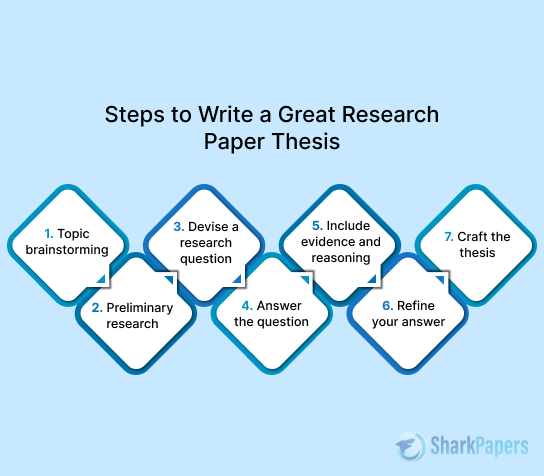
On this Page
What is a Thesis in a Research Paper?
Let’s take a look at the standard definition of a thesis statement:
“A thesis statement is a declarative sentence that asserts the position a paper will be taking. This statement should be both specific and arguable. Generally, the thesis statement will be placed at the end of the first paragraph of your paper. The remainder of your paper will support this thesis.”
When writing a research paper think of it as the roadmap for your readers that guides them throughout the entire paper.
How Long is a Thesis Statement?
Usually, thesis statements consist of one or, at most, two sentences . A good thesis isn't just about summarizing; it's about making a clear point and an arguable claim.
So, where should the thesis statement be placed in a research paper?
The thesis statement is usually placed at the end of the research paper introduction paragraph. The introduction provides background and introduces the topic before the thesis, while the body follows the thesis, presenting evidence and analysis to support it.
Thesis Statement vs. Research Question vs. Hypothesis
These terms are often confusing because they are closely related but serve different purposes. A thesis statement presents the main argument or claim of your research, outlining your stance on a topic.
A research question is the specific query you aim to answer through your study, guiding your research focus. Meanwhile, a hypothesis is a testable prediction about the relationship between variables, often framed before starting your research.
While the thesis summarizes your conclusions, the research question shapes your inquiry, and the hypothesis suggests what you expect to find.
Different Research Paper Thesis Types
Depending on different types of research papers , the thesis can take any of the following forms. Here are some common types:
- Analytical Thesis Statement
This type breaks down an issue or topic into its parts and evaluates them. It focuses on analyzing the components and understanding how they work together.
Example: "An analysis of the impact of social media on adolescent behavior reveals both positive and negative consequences, influencing mental health, social skills, and academic performance."
- Argumentative Thesis Statement
This type presents a clear argument or position on a topic, aiming to persuade the reader to agree with the viewpoint.
Example: "Government surveillance programs violate privacy rights and are ineffective in preventing terrorism, requiring stronger regulations to protect individual freedoms."
- Expository Thesis Statement
An expository thesis simply explains a topic or provides information about it without trying to persuade the reader. It presents facts or describes processes.
Example: "The process of photosynthesis involves the conversion of sunlight into energy, which is essential for plant growth and development."
Steps to Write a Thesis for a Research Paper
Follow these steps, and you’ll be writing compelling research thesis statements in no time.
Step 1. Brainstorm Your Topic
If you haven’t yet decided on the research topic, the first step is to brainstorm ideas.
- Start with identifying your key research areas and interests.
- Once you pick a general idea, dig deeper.
- Think about what makes you curious about the topic.
For example , if you’ve chosen climate change, your brainstorming might lead you to questions like:
- How does climate change affect wildlife in specific regions?
- What are the human activities contributing to climate change?
Topic brainstorming helps you create a roadmap and aids you in pinpointing areas within the broader topic that you’re most interested in. Check out our research paper topics blog for ideas!
Step 2. Conduct Preliminary Research
After brainstorming, the next step is to conduct research and explore what others have discovered about your topic.
You can read books, articles, and reliable sources. Gather information to understand the current state of knowledge on your topic.
Doing preliminary research helps build the foundation of your research thesis. You’ll have a better insight and understanding of your topic if you know it’s background.
Step 3. Choose a Clear Research Question
Now, narrow your focus to a specific, well-defined research question that aligns with your interests and the assignment.
Here’s how to narrow down your research problem :
- Get Specific: Focus on one aspect of your broader topic.
Example : Instead of “climate change,” ask “How does deforestation contribute to climate change?”
- Make It Matter: Choose a question that’s important and relevant.
Example : Instead of asking about technology in general, ask “How do smartphones impact our daily work?”
- Be Clear: Ensure your question is straightforward and easy to understand.
If the assignment doesn't provide a question, create one based on what you want to explore.
Step 4. Answer the Research Question
After you’ve crafted your research question, comes the time to compose your answer. What you need to do is to think about why this is your response and how you will convince readers.
- First Answer, or Working Thesis:
This is your starting answer, kind of like a rough draft.
For example , If your question is “How does cutting down trees affect climate change?” your first answer could be something like:
- Get Your Direction:
Think of this answer as a compass. It helps you know where you're going in your research project. It's the beginning of your thesis statement, which is the big idea that leads your whole research paper.
Remember, it's okay if this answer changes later as you learn more. It's like starting with a map and adjusting your path as you find new stuff. The point is to start with a thoughtful and informed beginning for your research project.
Step 5. Include Evidence and Reasoning
After making your first educated guess (working thesis), it's time to collect evidence that supports your idea. This is like finding puzzle pieces that fit with your initial thoughts.
If your working thesis is “ Cutting down trees lets out carbon, adding to the warming of the Earth ,” find data that shows how deforestation releases carbon. This data is like your evidence that makes your thesis more convincing.
Use real-life examples and expert opinions to strengthen your thesis.
For instance , if case studies show the environmental impact of deforestation or if reputable scientists have published articles supporting your point, include them.
- Include data showing the correlation between deforestation rates and increased carbon emissions.
- Provide examples of regions where deforestation has led to changes in climate patterns.
- Reference scholarly articles written by environmental experts that discuss the impact of deforestation on global warming.
This step elevates your working thesis to a solid thesis statement by grounding it in concrete evidence and expert perspectives. It transforms your idea into a well-supported argument that has the potential to engage readers from the get-go.
Step 6. Refine Your Answer
Now that you've presented your initial answer backed by evidence and reasoning, it's time to fine-tune it.
- Take a step back and look at your initial answer or working thesis . Does it still hold up in light of the evidence you've gathered? Consider if any adjustments or clarifications are needed
- Also, try to look at your answer from different angles and perspectives . Acknowledge alternative perspectives and see if there are valid counterarguments. This step adds depth and meaning to your thesis
- Refine your answer to capture the complexity of your topic. Your thesis should not oversimplify; it should reflect the richness of your research project
- Make sure that your thesis remains well-supported by the evidence you've gathered
For example , if your working thesis is “Cutting down trees lets out carbon, adding to the warming of the Earth,” after evaluating, you might refine it to:
Step 7. Finalize Your Thesis Statement
Now comes the final step of the thesis writing process. In the last stage, summarize your refined answer into a powerful single sentence or, if required, two sentences.
It should capture the main point of your research project and set the tone for your entire paper.
The final version of the refined answer we discussed would look something like this in the form of a final thesis statement.
One thing to note here is that you shouldn’t exceed the number of sentences used to more than 2.
Research Paper Thesis Examples
Here are some great research paper thesis statement examples for you. Go through them, and you’ll have a practical understanding of what makes a perfect research paper thesis.
Research Paper Thesis Example
See this effective research paper thesis example that brilliantly addresses the argument and the research direction.
Research Paper Thesis Template
Here is a good research paper thesis template that you can follow:
Thesis Statement Outline PDF
How to Write Thesis for a Research Paper APA Format - Example
Here are some simple steps on how to write a thesis statement for a research paper in APA format:
Middle School Research Paper Thesis
Research report thesis, history research paper thesis, thesis statement for a psychology research paper, thesis paragraph for a research paper.
Having read these examples, you should be able to give your research paper an edge with compelling thesis statements.
Examples of Strong Thesis Statement and Weak Thesis Statement
Some thesis statements are strong, precise, and accurately address the scope of the research study. On the other hand, some statements lack these aspects in one way or the other.
It could be beneficial for you to look at some strong thesis statement examples and weak thesis statement examples for an even better understanding. Take a look at the comparison table below:
Things to Avoid in a Research Paper Thesis
There are some things that you avoid performing at all costs for a great thesis.
So, for an effective research paper thesis, you should avoid:
- vague or overly broad statements.
- making statements without proper evidence.
- ambiguous and complex language that might confuse your readers.
- using a personal bias to overshadow your thesis.
- overly simplistic statements.
- stating the obvious without adding any fresh perspective.
To sum it up ,
Learning how to create a thesis for a research paper can take some time. But, after a bit of research and getting help from experts, you can engage readers will well-written statements.
With our comprehensive and step-by-step guide, we aim to help you understand everything about creating a thesis statement. From the initial topic brainstorming to the final statement, we’ve covered every writing step in detail.
However, if you’re still stuck somewhere, and you’re unsure how to move forward, don’t worry; just ask, ' help me write my paper '.
We have a pool of experienced writing specialists who can take your research paper worries away in a breeze. Experts at our service are up for any challenge you throw at them.
Get research paper writing help from us, let us know what you require, and we’ll solve your writing-related woes at the best and most affordable rates!
Frequently Asked Questions
What are the elements of a good research paper thesis.
A strong thesis statement typically includes the following core elements:
- Clarity: The thesis should clearly convey the main argument or point without ambiguity.
- Specificity: It must focus on a specific aspect of the topic, narrowing the scope for in-depth research.
- Arguability: A good thesis takes a stance that invites debate or discussion, rather than stating a simple fact.
- Conciseness: It should be concise, stating the core argument in one or two sentences without unnecessary detail.
How to Write a Thesis for a Research Essay?
- Identify your main argument: State the central idea or claim your essay will support.
- Be specific: Focus on a clear, concise topic that can be explored in-depth.
- Make it debatable: Ensure your thesis presents a point that others could disagree with.
For example, "Climate change is the most pressing issue of our time because it impacts global weather patterns, leads to rising sea levels, and threatens ecosystems."
How to Write a Thesis for a Term Paper?
- Clarify the purpose: State what your term paper will prove or examine.
- Be clear and concise: Keep the thesis focused on a single topic relevant to your course.
- Outline your approach: Briefly hint at the methods or framework you'll use to support your argument.
For example, "The Industrial Revolution transformed society more dramatically than any other period in history, fundamentally changing technology, economics, and culture."
How to Write a Thesis for a Research Report?
- Present the research problem: Clearly define the issue or question your report addresses.
- State your findings or stance: Summarize what your research reveals or your report's main point.
- Be objective and precise: Ensure your thesis is neutral and based on the data you’ll present.
For example, "This research report explores the correlation between social media use and mental health, finding that excessive usage is linked to increased levels of anxiety and depression."

Donna writes on a broad range of topics, but she is mostly passionate about social issues, current events, and human-interest stories. She has received high praise for her writing from both colleagues and readers alike. Donna is known in her field for creating content that is not only professional but also captivating.
Was This Blog Helpful?
Keep reading.
- Learn How to Write a Research Paper: Step-by-Step Guide
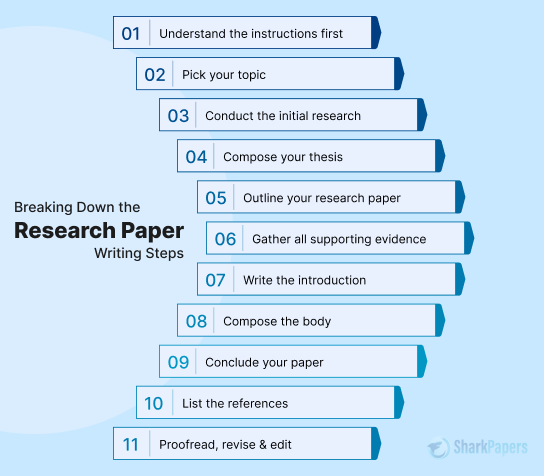
- Everything You Need To Know To Conduct Effective Qualitative Research

- Types of Qualitative Research Methods with Examples

- Best 300+ Ideas For Research Paper Topics in 2025

- How to Write a Proposal for a Research Paper: Steps & Examples

- A Beginner’s Guide on How to Write an Abstract

- 13 Best Tips to Start a Research Paper

- How To Write An Introduction For A Research Paper - A Complete Guide
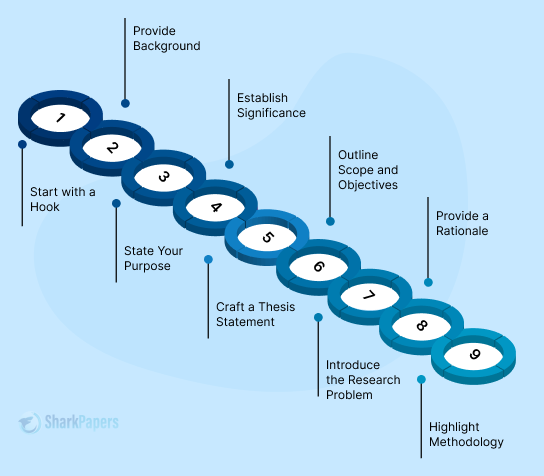
- Learn How To Write An Abstract For A Research Paper with Examples and Tips
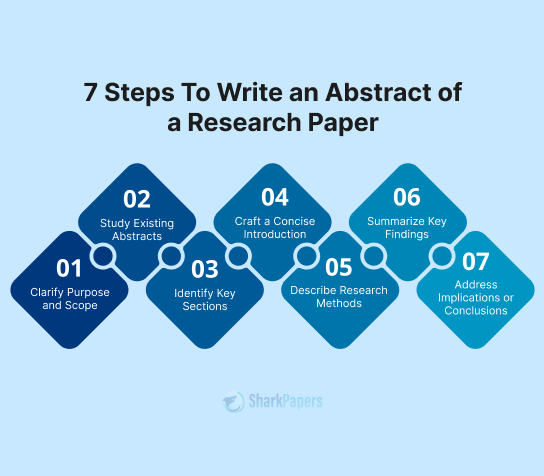
- How to Write a Literature Review for a Research Paper | A Complete Guide
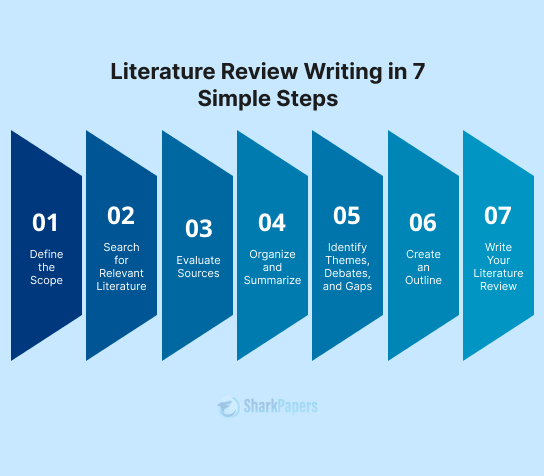
- A Guide to Writing The Methods Section of A Research Paper
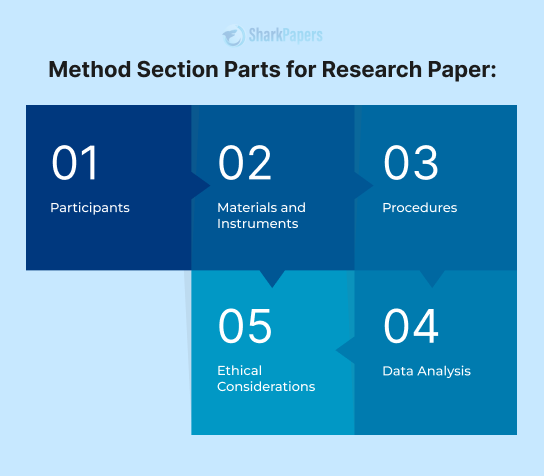
- How to Write a Research Paper Title That Stands Out
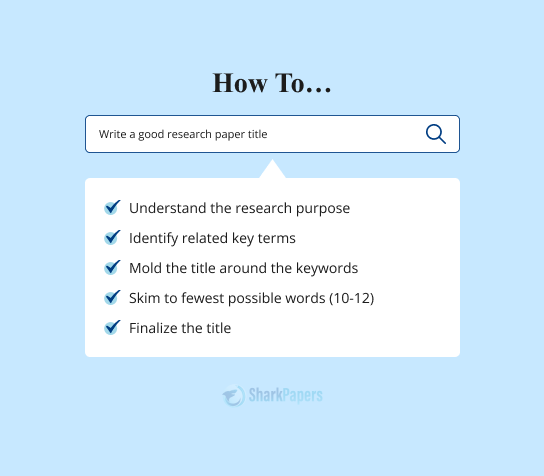
- A Detailed Guide To Writing a Research Paper Conclusion
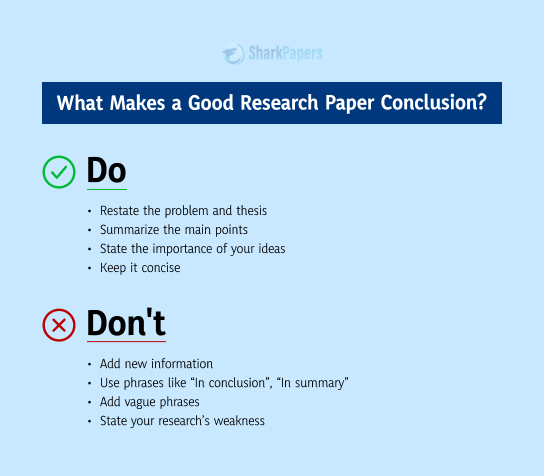
- How To Write The Results Section of A Research Paper | Steps & Tips
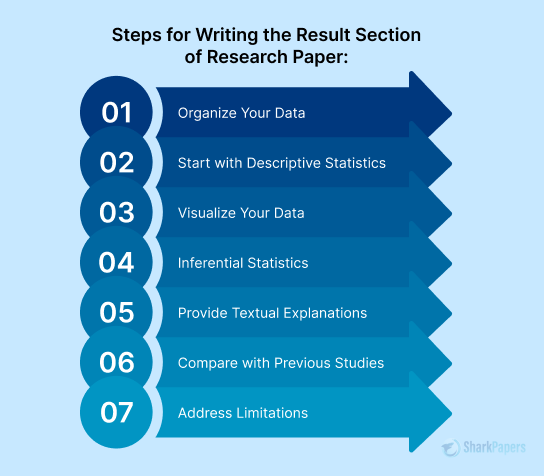
- How to Write a Problem Statement for a Research Paper: An Easy Guide
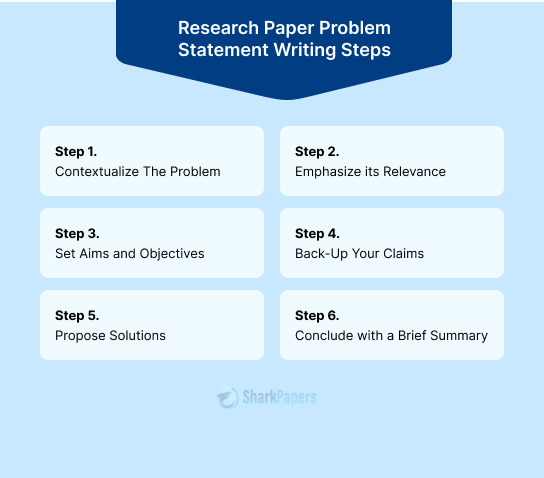
- How to Find Sources for a Research Paper | Books, Articles, Journals & more!
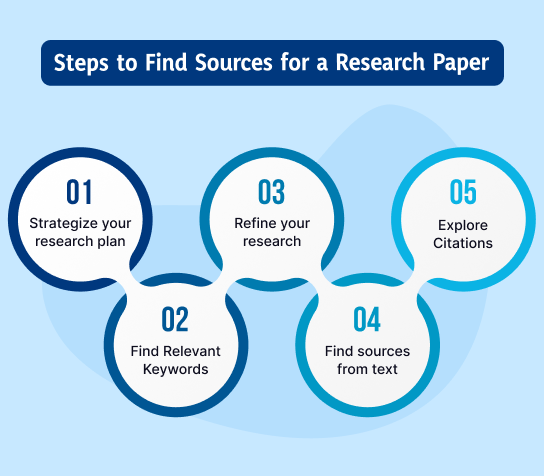
- A Detailed Guide: How to Write a Discussion for a Research Paper
)
- How To Write A Hypothesis In A Research Paper - A Guide with Examples
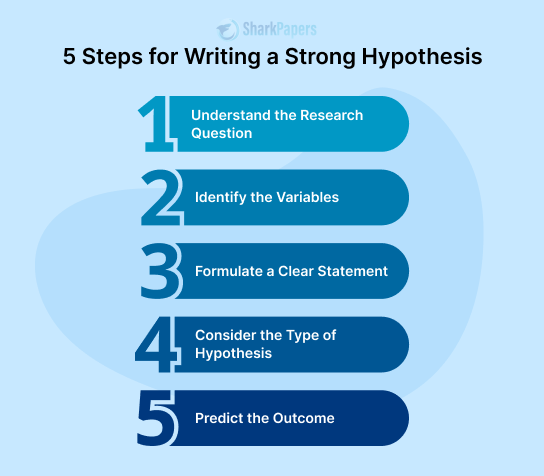
- Learn How To Cite A Research Paper in Basic Formats
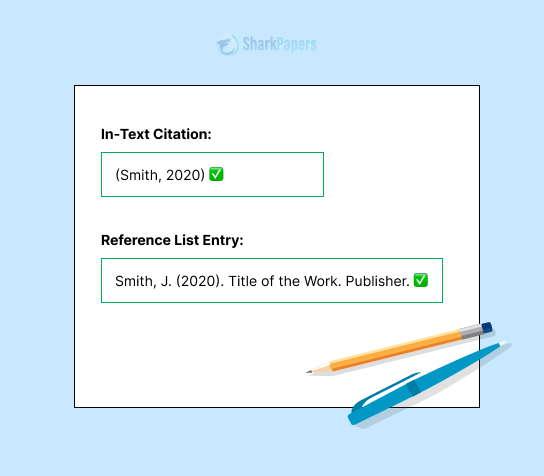
- The Ultimate List of Ethical Research Paper Topics in 2025
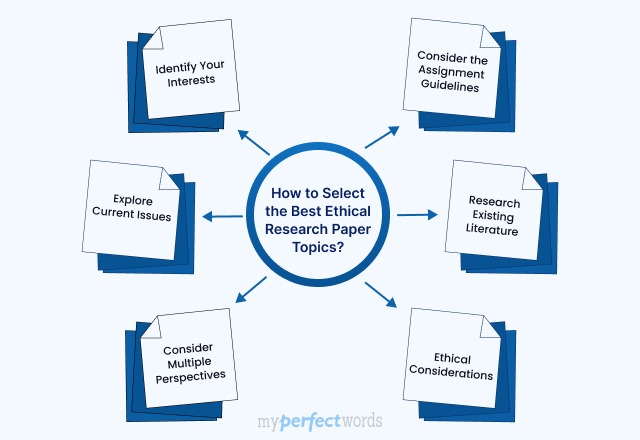
- 150+ Controversial Research Paper Topics to Get You Started
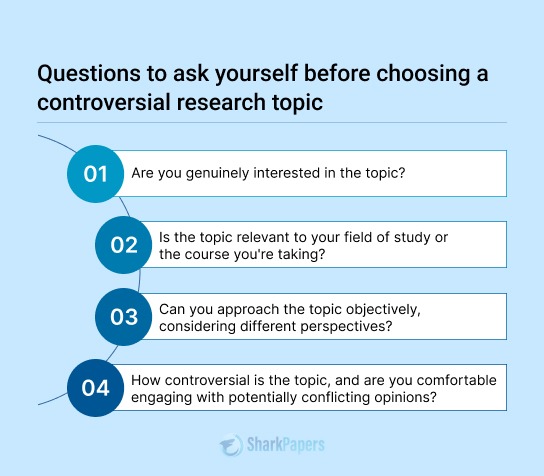
- How to Edit Research Papers With Precision: A Detailed Guide

- A Comprehensive List of Argumentative Research Paper Topics
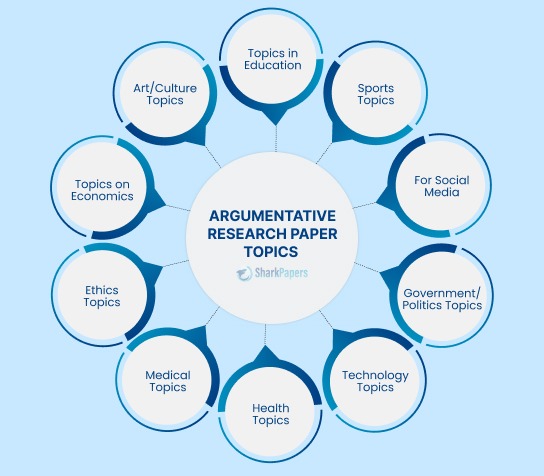
- A Detailed List of Amazing Art Research Paper Topics
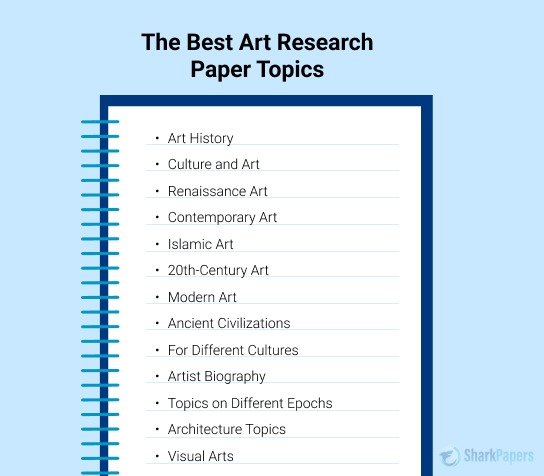
- Diverse Biology Research Paper Topics for Students: A Comprehensive List
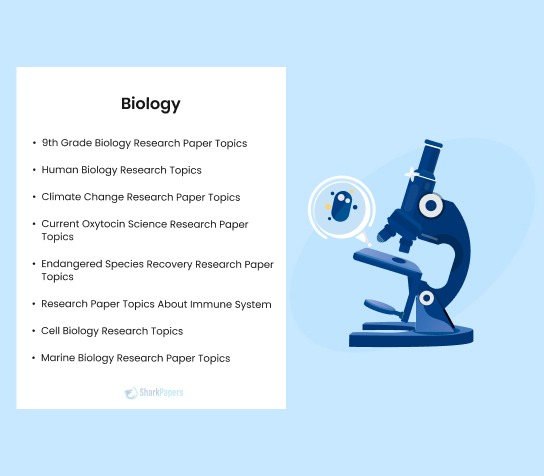
- 230 Interesting and Unique History Research Paper Topics

- 190 Best Business Research Paper Topics
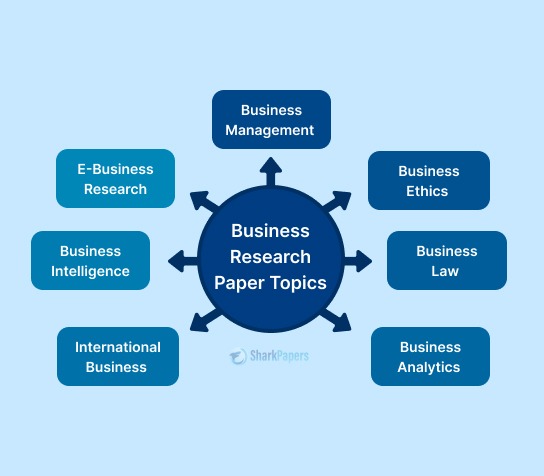
- 200+ Engaging and Novel Literature Research Paper Topics
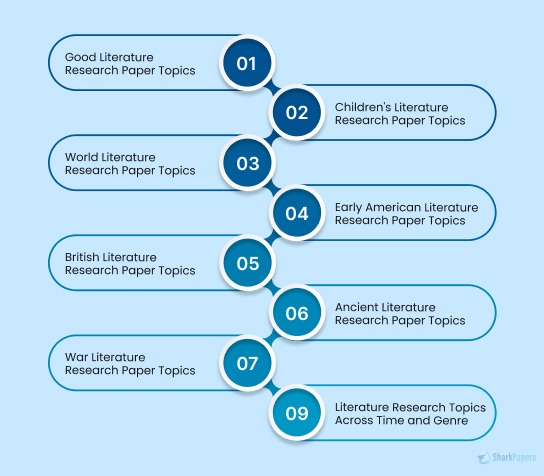
- A Guide on How to Write a Social Science Research Paper
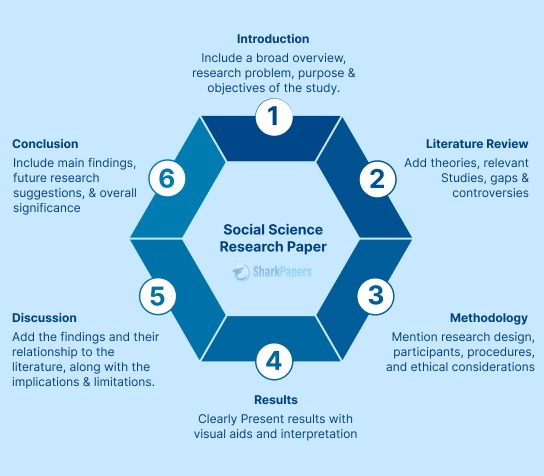
- Sociology Research Papers: Format, Outline, and Topics
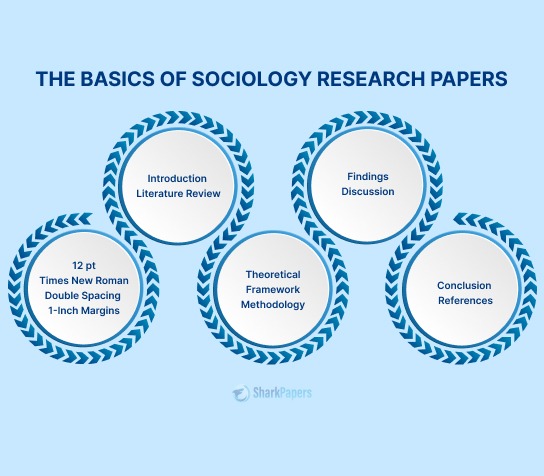
- Understanding the Basics of Biology Research Papers
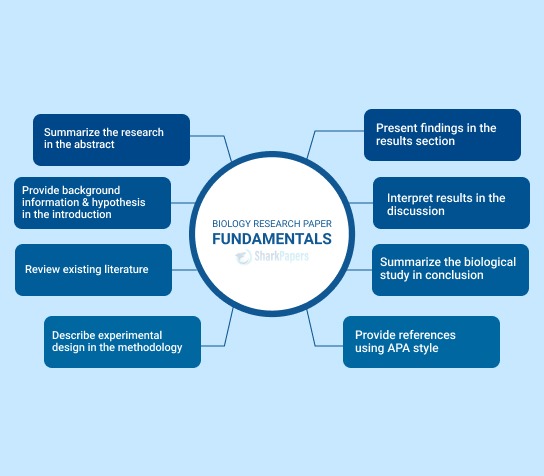
- How to Write a Psychology Research Paper: Guide with Easy Steps
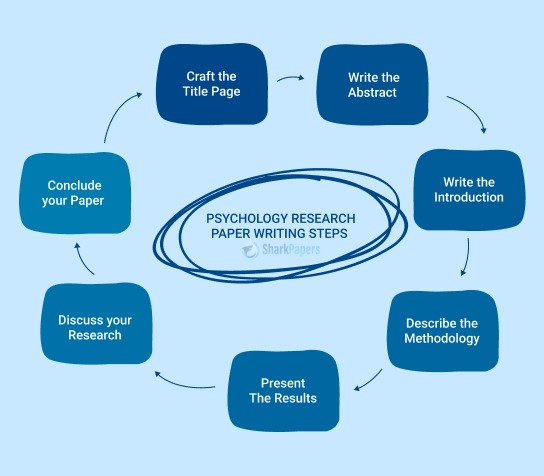
- Exploring the Different Types of Research Papers: A Guide
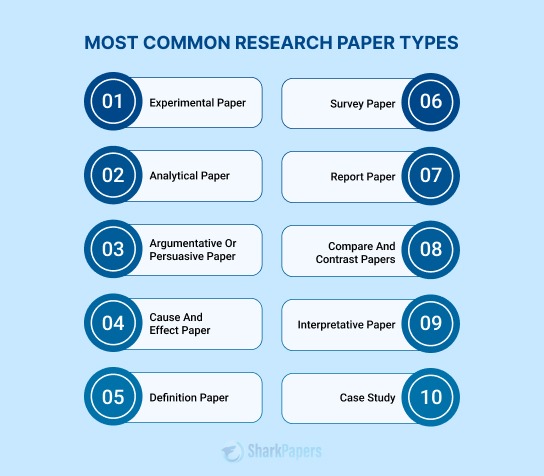
- Scientific Research Paper: Types, Formats, Structure & Writing Process

- Argumentative Research Paper | A Step-by-Step Guide

- Analytical Research Papers: A Detailed Walkthrough

- Experimental Research Paper Explained Comprehensively

- An In-Depth Look at Psychology Research Paper Examples

- 15+ Research Paper Examples for Different Types and Formats

- Free Argumentative Research Paper Examples

- Refine Your Literary Skills with Literature Research Paper Examples

- Get Inspired by 10+ Biology Research Paper Examples

- A Comprehensive Guide to History Research Paper Examples

- An Extensive List of Business Research Paper Examples

- 10+ Best APA Research Paper Examples for Effective Writing

- 10+ Expertly Crafted MLA Research Paper Examples

- Explore 8+ Chicago Research Paper Examples for Academic Excellence

- 15+ Examples of Abstracts for Research Papers

- Exploring IEEE Research Paper Examples: A Practical Guide

- Exploring Research Paper Thesis Examples: A Beginner's Guide

- 10 Free Research Paper Proposal Examples
-12114.jpg)
- A Look at 10 Interesting Art Research Paper Examples

- Survey Research Papers: Types, Format, Writing & Examples

- A Closer Look Into Research Paper Format: APA, MLA, Chicago & IEEE

- APA Research Paper Format 7th Edition: Guide with Examples

- MLA Research Paper Format Made Easy: Step-by-Step Guide

- Formatting Research Paper Title Page in APA, MLA & Chicago

- Crafting the Perfect Research Paper Outline | Steps & Examples

- A Detailed Guide to Chicago Research Paper Format

- An Easy Guide to IEEE Research Paper Format

- 12+ Practical Research Paper Outline Examples for Structuring Your Thoughts

- Engaging Psychology Research Paper Topics for Your Next Project

Struggling With Your Paper?
Get a Custom Paper Written at
with a FREE Turnitin report, AI report, title page, unlimited revisions, and a lot more!
LIMITED TIME ONLY
People Also Read
OFFER EXPIRES SOON!
© 2025 - All rights reserved
Disclaimer: All client orders are fulfilled by our team of experienced, professional writers. The essays and papers we provide are intended to serve as educational tools and reference models only, and should not be submitted as original work.
LOGIN TO YOUR ACCOUNT
SIGN UP TO YOUR ACCOUNT
- Your phone no.
- Confirm Password
- I have read Privacy Policy and agree to the Terms and Conditions .
FORGOT PASSWORD
- SEND PASSWORD

Research Paper: A step-by-step guide: 3. Thesis Statement & Outline
- 1. Getting Started
- 2. Topic Ideas
- 3. Thesis Statement & Outline
- 4. Appropriate Sources
- 5. Search Techniques
- 6. Taking Notes & Documenting Sources
- 7. Evaluating Sources
- 8. Citations & Plagiarism
- 9. Writing Your Research Paper

About Thesis Statements
Qualities of a thesis statement.
Thesis statements:
- state the subject matter and main ideas of a paper.
- appear in the first paragraph and announces what you will discuss in your paper.
- define the scope and focus of your essay, and tells your reader what to expect.
- are not a simple factual statement. It is an assertion that states your claims and that you can prove with evidence.
- should be the product of research and your own critical thinking.
- can be very helpful in constructing an outline for your essay; for each point you make, ask yourself whether it is relevant to the thesis.
Steps you can use to create a thesis statement
1. Start out with the main topic and focus of your essay.
youth gangs + prevention and intervention programs
2. Make a claim or argument in one sentence. It can be helpful to start with a question which you then turn into an argument
Can prevention and intervention programs stop youth gang activities? How? ►►► "Prevention and intervention programs can stop youth gang activities by giving teens something else to do."
3. Revise the sentence by using specific terms.
"Early prevention programs in schools are the most effective way to prevent youth gang involvement by giving teens good activities that offer a path to success."
4. Further revise the sentence to cover the scope of your essay and make a strong statement.
"Among various prevention and intervention efforts that have been made to deal with the rapid growth of youth gangs, early school-based prevention programs are the most effective way to prevent youth gang involvement, which they do by giving teens meaningful activities that offer pathways to achievement and success."
5. Keep your thesis statement flexible and revise it as needed. In the process of researching and writing, you may find new information or refine your understanding of the topic.
You can view this short video for more tips on how to write a clear thesis statement.
An outline is the skeleton of your essay, in which you list the arguments and subtopics in a logical order. A good outline is an important element in writing a good paper. An outline helps to target your research areas, keep you within the scope without going off-track, and it can also help to keep your argument in good order when writing the essay. Once your outline is in good shape, it is much easier to write your paper; you've already done most of the thinking, so you just need to fill in the outline with a paragraph for each point.
To write an outline: The most common way to write an outline is the list format. List all the major topics and subtopics with the key points that support them. Put similar topics and points together and arrange them in a logical order. Include an introduction, a body, and a conclusion.
A list outline should arrange the main points or arguments in a hierarchical structure indicated by Roman numerals for main ideas (I, II, III...), capital letters for subtopics (A, B, C...), Arabic numerals for details (1,2,3...), and lower-case letters for fine details if needed (a,b,c...). This helps keep things organized.
Here is a shortened example of an outline:
Introduction: background and thesis statement
I. First topic
1. Supporting evidence 2. Supporting evidence
II. Second Topic
III. Third Topic
I. Summarize the main points of your paper II. Restate your thesis in different words III. Make a strong final statement
You can see examples of a few different kinds of outlines and get more help at the Purdue OWL .
- << Previous: 2. Topic Ideas
- Next: 4. Appropriate Sources >>
- Last Updated: Apr 18, 2023 12:12 PM
- URL: https://butte.libguides.com/ResearchPaper
- Link to facebook
- Link to linkedin
- Link to twitter
- Link to youtube
- Writing Tips
How to Write a Thesis Statement for a Research Paper

4-minute read
- 26th July 2023
A strong thesis statement is the foundation of a successful research paper . The thesis gives focus to your ideas, engages readers, and sets the tone for the rest of the paper. You’ve spent substantial time and effort to craft a well-written and effective study , so you want your thesis statement to accurately reflect the impact of your work.
However, writing a thesis is often easier said than done. So if you’ve already got the arguments, the data, and the conclusions, keep scrolling for our straightforward guide on how to write a thesis statement for a research paper.
What Is a Thesis Statement?
A thesis statement is a clear and succinct assertion that presents the main argument or central idea of a research paper or other academic work. You usually find the thesis, which serves as a road map for the entire piece of writing, at the end of the introductory paragraph. The thesis also highlights the importance and relevance of the research topic , explaining why it’s worth studying and what impact it may have.
A good thesis statement also invites critical discussion and debate. Although your statement should provide a compelling argument , it should also inspire readers to engage with your ideas and potentially challenge or explore alternative viewpoints.
How to Write a Thesis Statement
Your thesis statement should outline the scope and boundaries of the paper and indicate what aspects of the topic you’ll cover. But now that you know what a good thesis statement entails, where should you start? Check out our series of steps below for help on writing an impactful thesis statement that accurately summarizes your research and arguments.
Understand the Purpose of Your Research
Before you can write a thesis statement, you need to understand the purpose and scope of your research. Pinpoint the specific topic or issue you’ll be exploring and the main objective of your paper. You should also familiarize yourself with the existing literature and research related to your topic because these will help you refine your focus and identify gaps in the existing knowledge that your research can address.
Consider the Impact of Your Research
Your thesis statement should answer the question, What is the relevance? – meaning it should tell the reader what the practical implications of your research are, why the research is significant, and what it adds to the broader academic landscape.
Find this useful?
Subscribe to our newsletter and get writing tips from our editors straight to your inbox.
Make a Concise Claim or Argument
Your statement should be clear, specific, and concise, conveying the main point of your research in one or two sentences. It should present a claim or argument that you’ll go on to support and defend in your paper, so avoid purely factual or self-evident statements. Be precise in your wording and tailor your thesis statement to the scope of your research – don’t introduce a new or unrelated topic that you don’t expressly address in your paper. The thesis statement is meant to indicate what the reader can expect to find in your paper, and you must support the thesis with evidence throughout.
Revise and Refine the Statement
Crafting a strong thesis statement may require multiple attempts, so take the time to revise and edit it until you’re satisfied that it meets your requirements.
Example Thesis Statement
Below is an example of a strong thesis statement that clearly emphasizes the main points of a research topic:
In this example, the thesis statement clearly identifies the main topic (technology’s impact on education) and presents a strong argument about technology’s positive effects. The thesis conveys the essential message of the research concisely in one sentence, leaving no doubt about the position of the author and what they’ll address in the paper.
Expert Editing Services
Ensure your research paper makes an impact by having our expert editors proofread it professionally. Our team has experience proofreading a variety of academic work, from research papers to dissertations to journal articles. Get started today by submitting your free sample of 500 words or less.
Share this article:
Post A New Comment
Got content that needs a quick turnaround? Let us polish your work. Explore our editorial business services.
5-minute read
Free Email Newsletter Template
Promoting a brand means sharing valuable insights to connect more deeply with your audience, and...
6-minute read
How to Write a Nonprofit Grant Proposal
If you’re seeking funding to support your charitable endeavors as a nonprofit organization, you’ll need...
9-minute read
How to Use Infographics to Boost Your Presentation
Is your content getting noticed? Capturing and maintaining an audience’s attention is a challenge when...
8-minute read
Why Interactive PDFs Are Better for Engagement
Are you looking to enhance engagement and captivate your audience through your professional documents? Interactive...
7-minute read
Seven Key Strategies for Voice Search Optimization
Voice search optimization is rapidly shaping the digital landscape, requiring content professionals to adapt their...
Five Creative Ways to Showcase Your Digital Portfolio
Are you a creative freelancer looking to make a lasting impression on potential clients or...

Make sure your writing is the best it can be with our expert English proofreading and editing.

IMAGES
COMMENTS
Use the introduction to state your thesis—that is, a short statement of your argument or your perspective. Review of the Literature. In a term or research paper, a large portion of the content is your report on the research you read about your topic (called the literature). You’ll need to summarize and discuss how others view the topic, and ...
Mar 6, 2024 · Learn how to write a thesis for a research paper in our comprehensive guide with examples. Discover tips to ace your research paper with a stellar thesis.
It’s helpful to develop a working thesis to guide your composition process. “Working” is the operative word here; your ideas are likely to change during research and the composing process, but beginning with a plan will help you stay focused.
Mar 25, 2024 · A strong thesis statement provides clarity, focus, and direction, making it an essential component of effective writing. This guide explores the definition, types, and examples of thesis statements, along with practical tips for crafting one.
Jun 8, 2023 · Here we explain how to write a thesis for a research paper. We’ll explain the best format for a research paper thesis and share some examples for different types of papers. We’ll even discuss the difference between a thesis statement, a research question, and a hypothesis.
Dec 5, 2024 · This blog covers steps on how to write an effective thesis statement, why it’s crucial to write a good thesis, and where to incorporate the thesis into the paper. We’ll also dissect good and bad examples to distinguish essential elements of a working thesis statement.
Jan 6, 2024 · Follow these steps, and you’ll be writing compelling research thesis statements in no time. Step 1. Brainstorm Your Topic. If you haven’t yet decided on the research topic, the first step is to brainstorm ideas. Start with identifying your key research areas and interests.
Apr 18, 2023 · Writing Your Research Paper. Thesis statements: state the subject matter and main ideas of a paper. appear in the first paragraph and announces what you will discuss in your paper. define the scope and focus of your essay, and tells your reader what to expect. are not a simple factual statement.
Nov 19, 2024 · The thesis statement is a short, direct statement that summarizes the main point or argument of a research paper, thesis paper, study, or academic essay. The thesis statement can be seen in quantitative, qualitative, and mixed research methods.
Jul 26, 2023 · A thesis statement is a clear and succinct assertion that presents the main argument or central idea of a research paper or other academic work. You usually find the thesis, which serves as a road map for the entire piece of writing, at the end of the introductory paragraph.